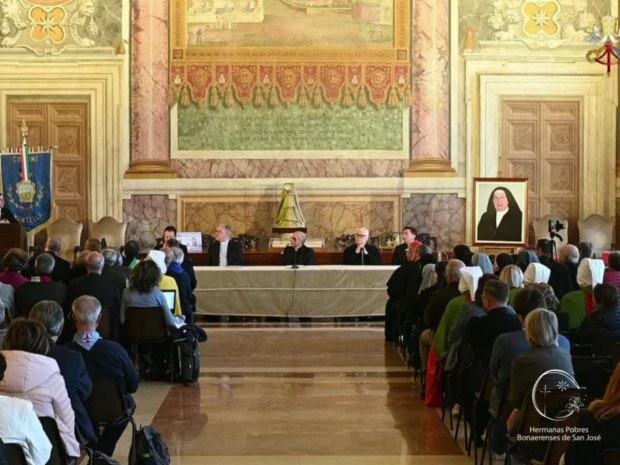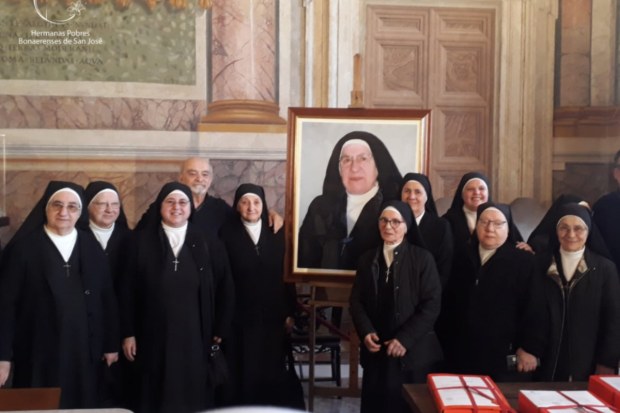Lenten Campaign 2025
This content is free of charge, as are all our articles.
Support us with a donation that is tax-deductible and enable us to continue to reach millions of readers.
Recognized during her life as a maternal figure for seminarians and priests, Sr. Bernadette of the Immaculate Sesso (1918-2001) left a trail of affection and respect and a reputation for holiness in her Italian homeland, in Argentina, and in the United States. A little more than 20 years after her death, her cause of beatification is taking an important step forward with the closing of the diocesan phase in Rome, the diocese in which she died.
Cardinal Leonardo Sandri, vice-dean of the College of Cardinals, presided at the Mass of thanksgiving for the canonical process at the Basilica of St. John Lateran.
The process will now continue at the Dicastery for the Causes of Saints, where after another exhaustive process the heroic virtues of the Servant of God will be declared, if so deemed.

Adele Sesso was born into a poor family in Montella, Italy, in 1918. From a young age she felt a call to religious life. Although she intended to join the Vocationists, like one of her sisters, she ended up joining the Congregation of the Poor Sisters of St. Joseph of Buenos Aires. They are a religious family founded in the 19th century in Argentina by Venerable Mother Camila Rolón, which had already crossed the ocean to Europe. She ministered in various works of the congregation at houses in Argentina, the United States, and Italy.
Since childhood she had prayed in a special way for seminarians and priests and supported them with her actions, a service that she deepened in a special way through her congregation. She earned from those men the nickname of "mother.” Although she had not joined the Vocationist sisters, she lived the same commitment to priestly vocations within her own religious family.

Serving in the kitchen of the seminary of Richmond, Virginia, she won the hearts of all. A testimony quoted in her official biography read:
In the Seminary everyone loved her, respected her, and helped her. She was 'Mother' for everyone. She not only fed the body, but also fed those who were troubled, sad, or undecided about their vocation. She sent them to pray, to place themselves at the feet of Jesus in the Sacrament, to pray their prayers. But she was also attentive to their behavior, to their respect, delicacy, neatness, presence, and witness.
When she was helping with the Jesuit novices while in Argentina, she met the then Fr. Jorge Bergoglio. Later, as Pope, he described her in these terms: "When I as novice master and also as provincial superior had a problem with someone, I would send him to talk to her. And she would give them two 'spiritual slaps' and things would be settled. That’s wisdom of the women of God, of mothers."
Among other examples of virtue shared in her biography, she faced illnesses with serenity and heroism.

Her last mission was in her native Italy, where she worked as a cook and doorkeeper. But the seminarians and priests for whom she had been a "mother" never forgot her, and continued to visit her. One of them, in 2001, gave her the Last Rites "in articulo mortis," shortly before her death. It was none other than Jorge Bergoglio, at that time already Archbishop of Buenos Aires. That February he had been created Cardinal, and in October of that year he was summoned to participate in the Synod of Bishops, of which he was the Adjunct Relator. Mother Bernadette died on December 12 of that year, after kissing a crucifix with faith and asking: "Jesus, do it soon."
Although the testimonies of her reputation of sanctity are found both in the United States and in Argentina, since she died in Rome the process was initiated there and has just been completed.



